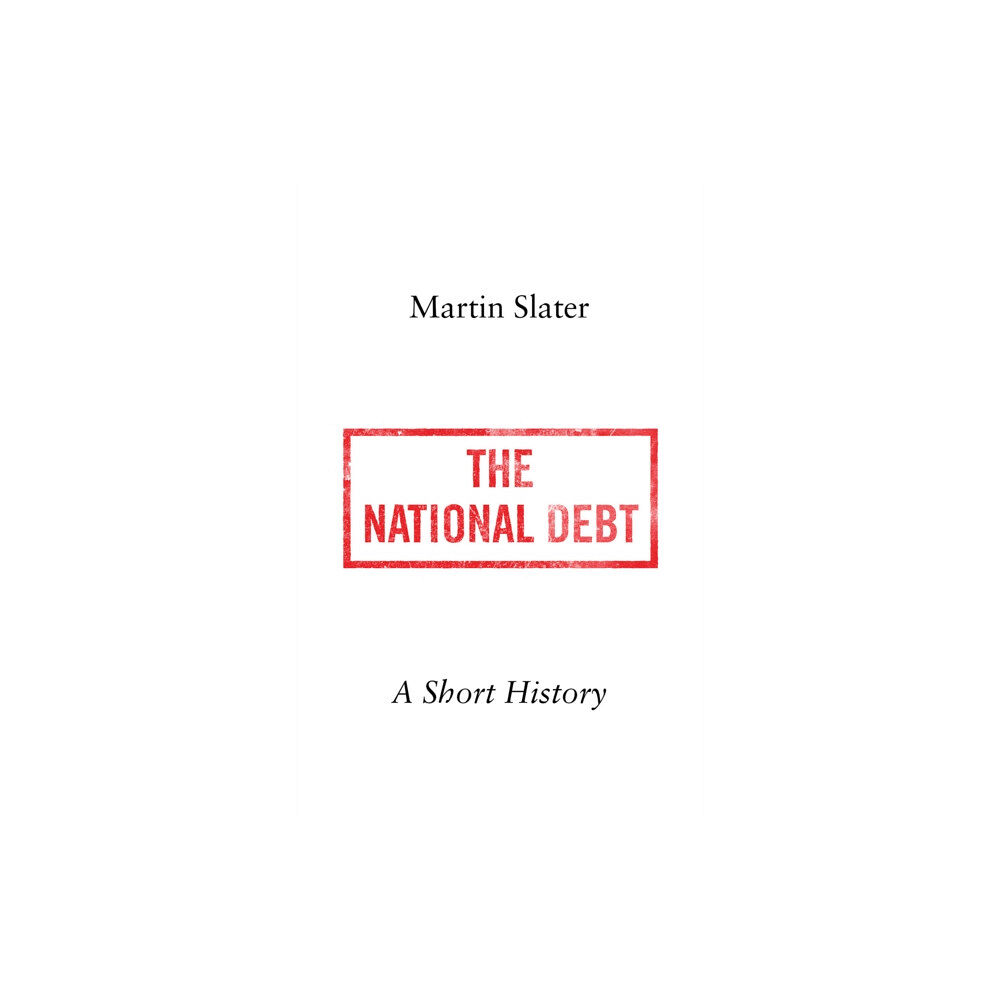- Hem
- Böcker
- Kurslitteratur
- Ekonomi & Företagande
- The National Debt (inbunden, eng)

The National Debt (inbunden, eng)
In today''s ''austerity era'', the national debt is newsworthy once again. But this phenomenon, while central to today''s politics, can be a...
365 kr
399 kr
Bara 2 kvar
Skickas inom 4 - 5 vardagar
Fri frakt över 399:-
Snabb leverans
Alltid låga priser
Produktbeskrivning
In today''s ''austerity era'', the national debt is newsworthy once again. But this phenomenon, while central to today''s politics, can be a highly technical subject. Few people fully understand its implications.Without the national debt, England would not have gained--or lost--two empires, nor prevailed in desperate wars against France and Germany.
But it heavily constrained peacetime economic policies--Keynesian economics was born out of the post-war desire to break free, and twenty-first-century ''austerity'' likewise identifies national debt as an evil. Yet it was not always so: in the peaceful nineteenth century, the debt was the cornerstone of Victorian financial rectitude.In this short history, Martin Slater traces the national debt for the national public.
Far from dry economic theory, it is a colourful tale encompassing many of the most dramatic incidents and personalities of Britain''s past--from clashes between King and Parliament, American independence and war in Europe, to the abolition of slavery, the development of the Union and the role of leading figures such as Pitt, Gladstone and Adam Smith.From medieval times to the 2008 crash and beyond, The National Debt explores the changing fortunes of the national debt, and of the nation itself.
But it heavily constrained peacetime economic policies--Keynesian economics was born out of the post-war desire to break free, and twenty-first-century ''austerity'' likewise identifies national debt as an evil. Yet it was not always so: in the peaceful nineteenth century, the debt was the cornerstone of Victorian financial rectitude.In this short history, Martin Slater traces the national debt for the national public.
Far from dry economic theory, it is a colourful tale encompassing many of the most dramatic incidents and personalities of Britain''s past--from clashes between King and Parliament, American independence and war in Europe, to the abolition of slavery, the development of the Union and the role of leading figures such as Pitt, Gladstone and Adam Smith.From medieval times to the 2008 crash and beyond, The National Debt explores the changing fortunes of the national debt, and of the nation itself.
| Format | Inbunden |
| Omfång | 256 sidor |
| Språk | Engelska |
| Förlag | C Hurst & Co Publishers Ltd |
| Utgivningsdatum | 2018-05-31 |
| ISBN | 9781849049412 |
Specifikation
Böcker
- Format Inbunden
- Antal sidor 256
- Språk Engelska
- Utgivningsdatum 2018-05-31
- ISBN 9781849049412
- Förlag C Hurst & Co Publishers Ltd
Leverans
Vi erbjuder flera smidiga leveransalternativ beroende på ditt postnummer, såsom Budbee Box, Early Bird, Instabox och DB Schenker. Vid köp över 399 kr är leveransen kostnadsfri, annars tillkommer en fraktavgift från 39 kr. Välj det alternativ som passar dig bäst för en bekväm leverans.
Betalning
Du kan betala tryggt och enkelt via Avarda med flera alternativ: Swish för snabb betalning, kortbetalning med VISA eller MasterCard, faktura med 30 dagars betalningstid, eller konto för flexibel delbetalning.
Specifikation
Böcker
- Format Inbunden
- Antal sidor 256
- Språk Engelska
- Utgivningsdatum 2018-05-31
- ISBN 9781849049412
- Förlag C Hurst & Co Publishers Ltd
